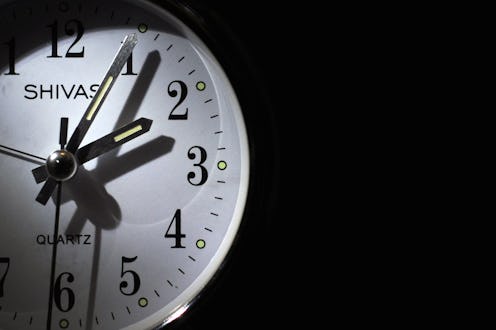News
Why Do We Turn The Clocks Back?
At 2 a.m. on Nov. 1, Daylight Saving Time (DST) will end, and clocks will have to be set back an hour. You don't want to miss this time change if you need to be anywhere Sunday morning, because showing up an hour late is only fashionable at parties — though if your alarm is on your smartphone, it will automatically make the switch for you. Springing forward and falling back are parts of life we've all come to anticipate every year, but why do we have to turn the clocks back?
We have Benjamin Franklin to thank for the original idea that we should change the time twice a year, although he was kind of joking. In an essay Franklin wrote in 1784 to the editor of The Journal of Paris, titled "An Economical Project for Diminishing the Cost of Light," he suggested that Parisians could save money on candles if they got out of bed earlier in the morning, maximizing the use of natural light. In 1905, William Willet (the great-great-grandfather of Coldplay lead singer Chris Martin, according to The Telegraph) took the idea a bit further and actually suggested DST in Britain. Instead of the hour change that we're accustomed to, Willet suggested setting the nation's clocks back 20 minutes every Sunday in September and forward 20 minutes every Sunday in April, so the time change would be more gradual. Sadly, Willet died before his DST idea was implemented.
Essentially, we turn the clocks back to make better use of daylight and save energy on lighting. During the fall and winter months, the sun sets earlier than it does in the spring and summer, so setting clocks back an hour allows us to capitalize on natural light. If we didn't have DST, winter would probably seem more dark and gloomy than it already does.
Germany was the first country to turn its clocks back, and the U.S. didn't join in until 1918, when DST was called "fast time." The entire country doesn't observe DST though — Hawaii and most of Arizona (the parts not in the Navajo Nation) don't turn their clocks back. A 2014 Rasmussen Reports survey found that 43 percent of Americans think there's no real need for DST. It can be confusing when you don't know when the time switch takes place, but luckily smartphones are making it easier to fall back and spring forward.
Regardless of the reason for DST, enjoy the extra hour of sleep Saturday night.
Images: Giphy (1)
